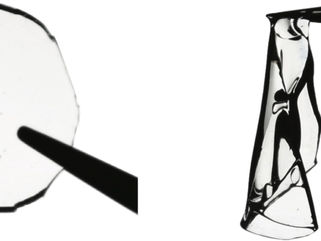DuPont Engineering Polymers Previews Plans to Produce a New Family of High-Performance Polymers Made with Renewable Resources
Advertisement
DuPont Engineering polymers announced at NPE that it is moving forward with plans to produce a new family of highperformance thermoplastic resins and elastomer products made with renewable resources.
The new products are DuPont(TM) Sorona® polymer and DuPont(TM) Hytrel® made with renewable resources. The key ingredient in Sorona® is Bio-PDO(TM), which is derived from corn sugar using a patented and proprietary fermentation process. Bio-PDO(TM) is a replacement for petrochemical based 1,3-propanediol (PDO) and/or 1,4-butanediol (BDO). DuPont(TM) Hytrel® made with renewable resources will be produced using a new DuPont polyol made with Bio-PDO(TM) . DuPont(TM) Sorona® with Bio-PDO(TM) will be available mid 2007; and DuPont(TM) Hytrel® with renewable resources will be available 4th quarter 2007.
"With these new products, we will be able to offer our customers the benefits of renewably sourced materials - reduced dependence on petrochemical sourcing and a positive impact on the environmental life cycle of their products." said Nandan Rao, vice president, global technology for DuPont Performance Materials. In addition to replacing petrochemicals with renewable resources, the manufacturing of Bio-PDO(TM) requires approximately 40 percent less energy to produce than its petrochemical-based counterpart - saving the equivalent of about 10 million gallons of gasoline per year, based on annual production volumes of 100 million pounds of Bio-PDO(TM).
"Both of these new products will contribute to our corporate goal of deriving 25 percent of our revenue from non-depletable resources by 2010," said Rao. The performance and processing characteristics of both Sorona® and Hytrel® made with renewable resources are as good as or better than those of current products made wholly from petrochemicals. "Each of the new polymers based on renewable resources has special performance attributes that may drive choices in some applications," said Rao.
Among engineering plastics, Sorona® exhibits performance and molding characteristics similar to PBT (polybutylene terephthalate). "In addition to good strength and stiffness, we see improved surface appearance, gloss and good dimensional stability making it very attractive in a range of uses for automotive parts and components, electrical and electronics systems as well as industrial and consumer products," said Rao.
Preliminary evaluations comparing Hytrel® made with renewable resources to current Hytrel® show improvements in properties, such as temperature range and elastic recovery. Moreover, applications for Hytrel® made with renewable resources are extensive. Examples of major uses include extruded hose and tubing for automotive and other industrial uses, blow molded boots for automotive constant-velocity joints, injection molded parts such as air bag doors and energy dampers.
Making engineering polymers from renewable resources
Loudon, Tennessee will be home for the world's largest aerobic fermentation plant for the production Bio-PDO(TM). The plant is owned and operated by DuPont Tate & Lyle Bio Products, an equally owned joint venture of DuPont and Tate & Lyle. It is scheduled to come on stream later this year and will produce 100 million pounds of Bio-PDO(TM) (over 45,000 metric tons) per year. Sorona® polymer is made by polymerizing Bio-PDO(TM) with either terephthalic acid (TPA) or dimethyl terephthalate (DMT). Sorona® polymer with Bio-PDO(TM) will be produced at the DuPont plant in Kinston, N.C., and ready-to-mold compounds will be produced in Parkersburg, W. Va.
Both Hytrel® products have polymer chains consisting of hard and soft segments. Hytrel® made with renewable resources will offer soft segments produced with a bio-based polyol instead of a petrochemical polyol. The bio-based polyol and Hytrel® made with renewable resources can be produced in DuPont's existing facilities.

































































